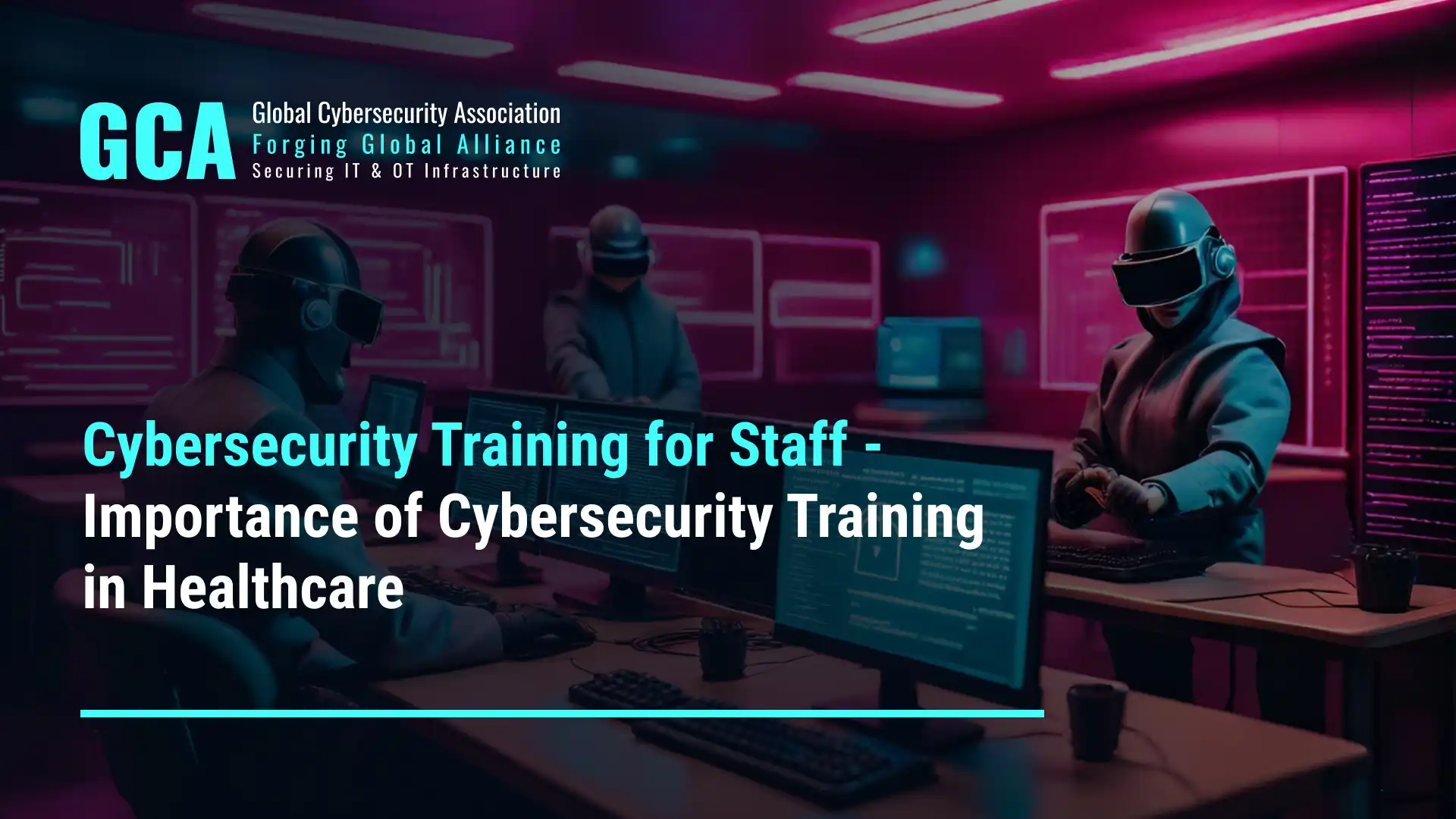In today’s digitized healthcare landscape, the protection of patient data and the integrity of healthcare systems depend heavily on the cybersecurity awareness and preparedness of healthcare staff. As frontline defenders against cyber threats, healthcare professionals play a crucial role in safeguarding sensitive patient information, mitigating cybersecurity risks, and preserving the trust and integrity of healthcare delivery.
In this blog post, the Global Cybersecurity Association (GCA) underscores the importance of cybersecurity training for healthcare staff and provides insights into the essential components of effective cybersecurity training programs.
The Growing Importance of Cybersecurity Training in Healthcare
Cybersecurity threats targeting healthcare organizations continue to evolve in sophistication and complexity, posing significant risks to patient privacy, data security, and operational continuity. From ransomware attacks to phishing scams, healthcare facilities are prime targets for cybercriminals seeking to exploit vulnerabilities in digital systems and gain unauthorized access to sensitive patient data. In this increasingly hostile cybersecurity landscape, providing comprehensive cybersecurity training to healthcare staff is essential to:
- Raise Awareness: Educate healthcare professionals about common cybersecurity threats, attack vectors, and best practices for protecting patient data and healthcare systems from cyber attacks.
- Promote Vigilance: Foster a culture of cybersecurity awareness and vigilance among healthcare staff, empowering them to recognize and respond effectively to potential security incidents or suspicious activities.
- Ensure Compliance: Ensure that healthcare staff are knowledgeable about regulatory requirements, such as the Health Insurance Portability and Accountability Act (HIPAA) and the General Data Protection Regulation (GDPR), and understand their roles and responsibilities in maintaining compliance with data protection standards.
- Enhance Preparedness: Equip healthcare professionals with the skills and knowledge needed to identify, mitigate, and report cybersecurity risks, ensuring that they are well-prepared to respond to cybersecurity incidents and breaches effectively.
Essential Components of Effective Cybersecurity Training Programs
Effective cybersecurity training programs for healthcare staff should encompass a range of topics and delivery methods tailored to the unique needs and responsibilities of healthcare professionals. Key components of effective cybersecurity training programs include:
- Basic Cybersecurity Concepts: Provide foundational training on cybersecurity fundamentals, including threat awareness, risk management, data protection principles, and cybersecurity best practices relevant to healthcare environments.
- Security Awareness Training: Deliver interactive and engaging security awareness training modules covering topics such as phishing awareness, password security, social engineering tactics, and safe computing practices to help healthcare staff recognize and avoid common cyber threats.
- Role-Based Training: Customize cybersecurity training programs to address the specific roles and responsibilities of different healthcare staff members, including physicians, nurses, administrative staff, IT personnel, and telehealth providers, ensuring that training content is relevant and applicable to their job functions.
- Compliance Training: Provide specialized training on regulatory requirements and compliance standards governing data privacy and security in healthcare, such as HIPAA, GDPR, and other jurisdiction-specific regulations, to ensure that healthcare staff understand their legal obligations and compliance responsibilities.
- Simulated Phishing Exercises: Conduct simulated phishing exercises to test healthcare staff’s susceptibility to phishing attacks, raise awareness of phishing risks, and reinforce security awareness training through hands-on experience with simulated phishing scenarios.
- Incident Response Training: Provide training on incident response procedures, including incident detection, containment, eradication, and recovery, to ensure that healthcare staff are prepared to respond effectively to cybersecurity incidents and breaches in accordance with established protocols.
Continuous Learning and Updates:
Offer ongoing cybersecurity training and professional development opportunities to healthcare staff to keep them informed about emerging cyber threats, new attack techniques, and evolving cybersecurity best practices, ensuring that their knowledge and skills remain up-to-date in a rapidly changing threat landscape.
